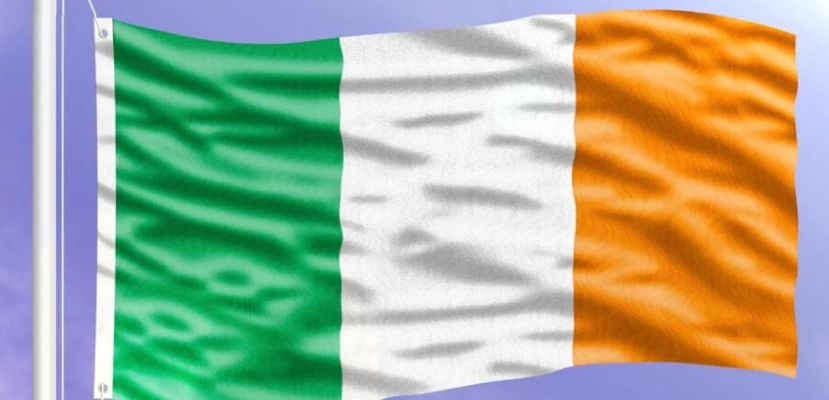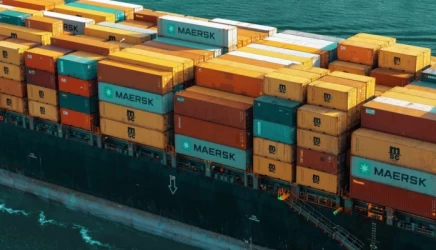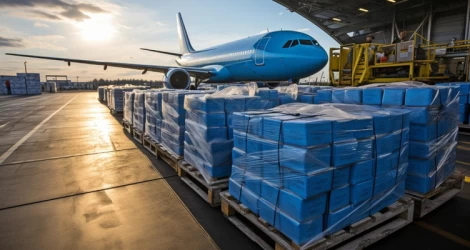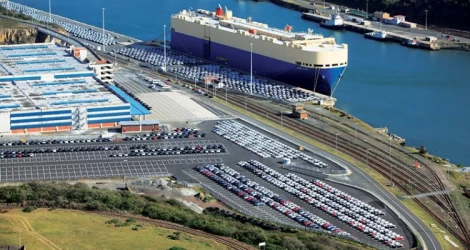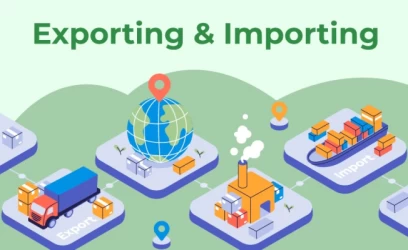Guide to trade with Ireland, sea freight
Ireland, located in Northern Europe, is known for its robust economy and open market, making it an attractive destination for international trade. With its strategic location along the Atlantic Ocean, maritime shipping plays a crucial role in the movement of goods to and from the country. This guide aims to provide a detailed overview of trading with Ireland, the opportunities available, potential challenges, and best practices for maritime shipping to and from this country.
Opportunities for Trade with Ireland
Ireland presents various opportunities across different sectors, making it a prime destination for international businesses looking to expand their market presence.
1. Technology and IT Services
Ireland is recognized globally as a tech hub, hosting the European headquarters of several tech giants such as Google, Facebook, and Microsoft. This makes it an attractive market for businesses involved in software, cloud services, and digital products.
2. Agriculture and Food Products
Ireland's lush green landscape and fertile farmlands make it one of the leading exporters of high-quality agricultural products. Irish beef, dairy products, and beverages such as Irish whiskey are among the top exports. Companies dealing with food and beverages will find Ireland a lucrative market for both importing and exporting.
3. Pharmaceuticals and Medical Devices
Ireland is one of the largest exporters of pharmaceutical products and medical devices. The country hosts several multinational pharmaceutical companies, making it a strong player in the global healthcare sector.
4. Investment Opportunities
Ireland offers a favorable business environment, with attractive corporate tax policies, a highly educated workforce, and state-of-the-art infrastructure. This makes it a prime location for foreign direct investment (FDI), particularly in sectors like financial services, manufacturing, and technology.
Challenges in Trading with Ireland
While there are numerous opportunities, there are also challenges that businesses must be aware of when trading with Ireland.
1. Taxation and Regulatory Policies
Ireland has specific taxation policies that may be complex for international businesses to navigate. Understanding the country’s corporate tax laws, Value Added Tax (VAT), and customs duties is essential for success.
2. High Shipping and Transport Costs
Although maritime shipping is one of the most cost-effective means of transporting goods, businesses may still face high shipping costs, especially for bulky or perishable goods that require specialized containers or expedited delivery.
3. Currency Fluctuations
Ireland uses the Euro (EUR), and businesses from countries outside the Eurozone may face currency exchange risks. This could potentially impact the cost-effectiveness of trade deals, especially when dealing with large shipments.
Guide to Maritime Shipping to Ireland
Ireland’s strategic position as an island nation makes maritime shipping one of the most efficient ways to trade. The country is home to several major ports that are well-connected to international markets, including Dublin Port, Cork Port, and Shannon Foynes Port. Here are key considerations when shipping goods to Ireland:
1. Understanding Shipping Documentation
Proper documentation is crucial for clearing customs and ensuring the smooth transport of goods. Some essential documents include:
- Bill of Lading (B/L): Serves as proof of shipment and details the type of goods being transported.
- Commercial Invoice: Lists the value, quantity, and description of the goods.
- Certificate of Origin: Verifies the origin of the goods being shipped, which may impact customs duties.
- Customs Declaration: Provides details of the shipment to the customs authorities.
For specific goods such as food products or medical devices, additional documentation such as health certificates or quality standards may be required.
2. Choosing the Right Maritime Shipping Company
Partnering with a reputable shipping company is key to ensuring your goods arrive in Ireland safely and on time. Major global shipping lines that offer services to Irish ports include Maersk Line, MSC, and CMA CGM. It’s important to compare shipping rates, delivery times, and reliability before choosing your shipping partner.
3. Packaging and Labeling Requirements
Goods transported via maritime routes must be adequately packaged to prevent damage. This is especially important for fragile or perishable items. Moreover, labeling should comply with Ireland’s import regulations, including weight, dimensions, and safety instructions.
4. Calculating Shipping Costs
Shipping costs depend on several factors, including the volume and weight of the goods, the type of container used, and the shipping route. Generally, shipping costs to Ireland can be divided into:
- Freight Costs: Charged by the shipping line based on the container type and shipping route.
- Port Handling Charges: Fees related to loading and unloading goods at Irish ports.
- Customs Duties and Taxes: These vary depending on the type of goods being imported into Ireland.
5. Marine Insurance
Marine insurance protects your goods against potential damage, loss, or delay during transit. Given the unpredictable nature of sea freight, insuring your cargo is highly recommended. Common types of marine insurance policies include all-risk coverage, which covers most eventualities, and total loss coverage, which only covers significant losses such as sinking or piracy.
6. Compliance with Irish and EU Customs Regulations
Ireland is a member of the European Union, meaning that its customs regulations align with EU laws. Goods entering Ireland must comply with EU standards and regulations. This includes adherence to product safety, environmental standards, and labeling rules. If your goods do not meet these requirements, they may be held at customs or even returned.
7. Customs Clearance and Duties
Understanding the customs clearance process is vital for smooth operations. This includes declaring the value of goods correctly, providing all necessary documentation, and paying any applicable customs duties and taxes. Ireland has different duty rates depending on the type of goods being imported. It’s important to be aware of these rates and factor them into your cost calculations.
Conclusion
Trading with Ireland offers substantial opportunities, particularly in high-growth sectors such as technology, agriculture, pharmaceuticals, and investment. However, international businesses must navigate challenges such as regulatory compliance, high shipping costs, and potential currency fluctuations.
Maritime shipping remains one of the most efficient and cost-effective means of transporting goods to Ireland, thanks to its well-developed ports and shipping infrastructure. By understanding the shipping documentation, packaging standards, insurance options, and customs regulations, businesses can ensure smooth, timely delivery of goods and successful trading relationships with Irish partners.
If you have any specific questions or need further assistance, feel free to ask!

